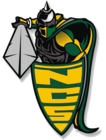Disc 1 - https://vimeo.com/channels/1049685/83032396
Disc 2 - https://vimeo.com/81355363
Disc 3 - https://vimeo.com/81939528
Disc 4 - https://vimeo.com/81939529
Disc 5 - https://vimeo.com/81961595
Disc 6 - https://vimeo.com/83555648
Disc 7 - https://vimeo.com/83555647
Disc 8 - https://vimeo.com/83555523
Disc 9 - https://vimeo.com/84772248
Disc 10 - https://vimeo.com/84771981
Disc 11 - https://vimeo.com/84772475
Online copy http://ehwalter.btps.ca/documents/general/To-Kill-a-Mockingbird-Complete.pdf
March 15 - read to 15:31 in Chapter 1
March 16 - read to end of Chapter 1 audio 36:10 - work on Chapter 1 questions and Colour/Symbol/ Image project
March 17 - read Chapter 2, audio from 36:10-58:48 - work on chapter 2 questions
March 18 - Literary terms test, reading to page 36 Chapter 3 58:48 disc 1 to 10:28 Disc 2 and then working on questions
March 19 - no school
March 22 - vocab test moved to tomorrow, read handouts #2,#3, #4 and #5, read to end of Chapter 4 - 34:18 on audio. Work on questions.
March 23 - vocab test, worked on assignments, read chapter 5, completed the case study prediction worksheets
March 24 - read chapters 6, 7 to end of audio 2 and then onto audio 3 - 21:20 - check prediction sheets, work on assignments
March 25 - read chapter 8 and 9 to page 88, disc 3 56:38 - work on assignments
March 26 - read chapter 9 from page 88 to end of Chapter 9 audio disc 4 - 20:28 - work on assignments
March 29 - read chapter 10 and part of chapter 11to audio disc 4 54:10 -
Chapters 1-11 matching and MC quiz tomorrow
Chapter question TKAM chapters 12-30
March 30 - finish chapter 11- take quiz - to audio disc 5 to 9:44
March 31 read chapters 12 and 13 to end of disc 5 - work on questions
April 1 read chapters 14 and 15 to 55:44 on disc 6 - work on questions
April 12 read chapters 16 and 17- work on questions audio - disc 7 at 33:06
April 13 read - finish chapter 17 - work on questions disc 7 to 50:43
April 14 read chapters 18 to disc 8 9:23 - work on questions
April 15 read chapter 19 to disc 8 36:54, quiz then work on questions
April 16 read chapter 20 plus into chapter 21 to 1:05:11 on disc 8- work on questions
April 19 read - finish Chapter 21, read 22 and part of 23 - work on questions on disc 9 to 18:33
April 20 read finish chapter 23, chapter 24- work on questions
April 21 - Chapter 25, 26-work on questions
April 22 - Chapter 27, 28 to end of disc 10-work on questions disc 10 27:26
April 23 - Finish Chapter 28 and read Chapter 29-work on questions
April 26 - Chapter 30 and 31 - hand in all overdue work for this semester if you want it marked
April 27 - Final exam and start film study
April 28 -
April 29 -
April 30 -
